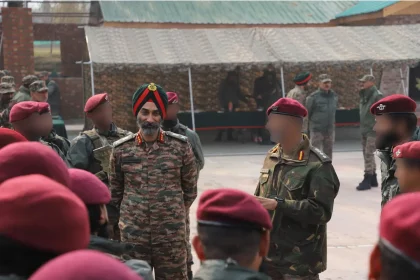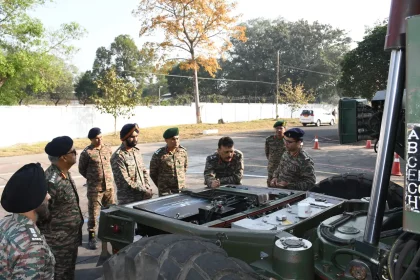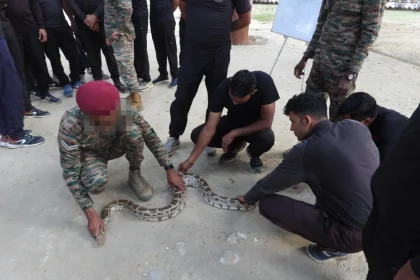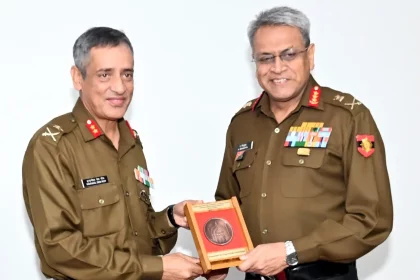Lt Gen HS Vandra Reviews Operational Preparedness of Russell’s Vipers Assault Teams
COS Sapta Shakti Command praises professionalism, vigilance and high operational standards during Northern Command visit.
Major General Vivek Tyagi Reviews RDC 2026 Preparations
ADG Maharashtra Directorate inspires cadets, praises training standards and reinforces the Directorate’s champion legacy.
Lt Gen Rajiv Kumar Sahni Reviews Innovation-Driven Upgrades at 506 Army Base Workshop, Jabalpur
Legacy to lethal: Indian Army accelerates automation, clean-power repowering and indigenous manufacturing in armament systems.
UP ATS Completes 21-Day Combat Training Under Shatrujeet Brigade
Elite capsule hones instincts, hardens resolve and transforms commandos into mission-ready warriors.
Lt Gen Anindya Sengupta Inaugurates Inter-Command CDE Programme at Lucknow
Two-day dental conference highlights collaborative care and dentistry’s pivotal role in systemic health.
Hawk Force Inspector Ashish Sharma Martyred in Anti-Naxal Operation
Bhopal/Rajnandgaon, November 20, 2025 – Inspector Ashish Sharma, a distinguished officer of the Madhya Pradesh Police's elite anti-Naxal unit known…






